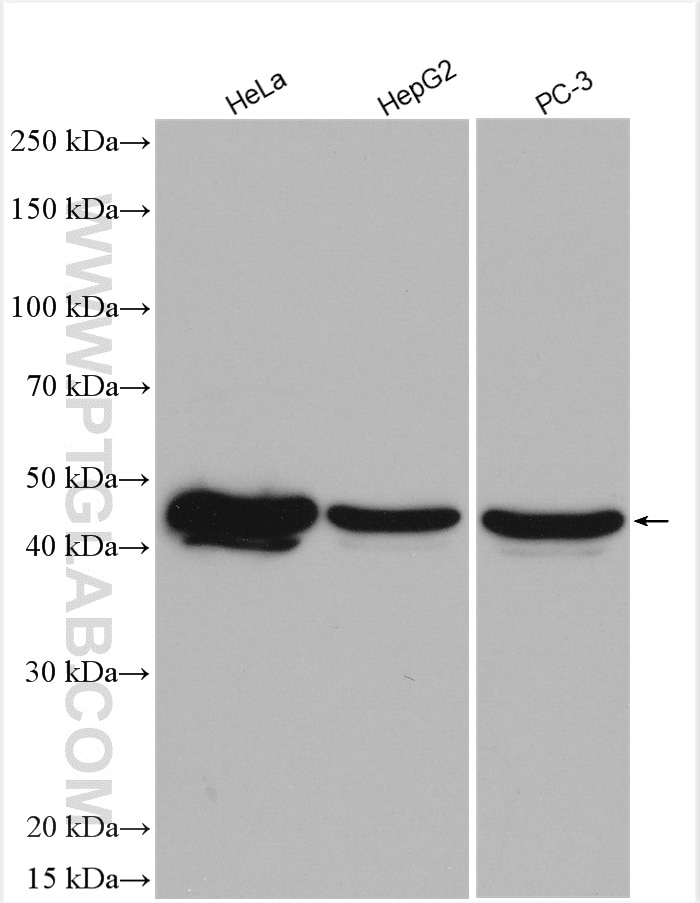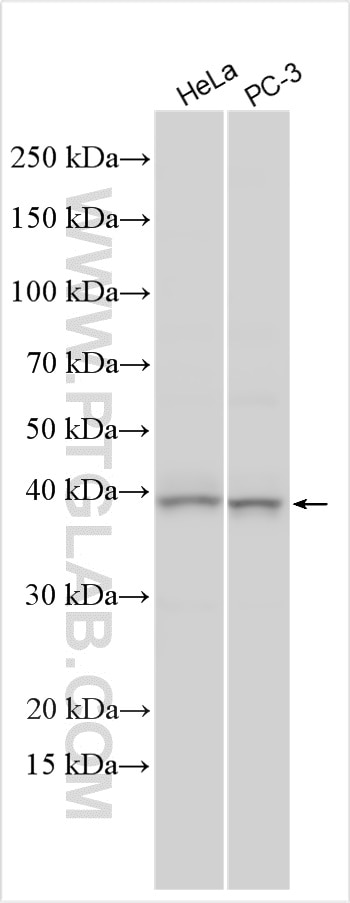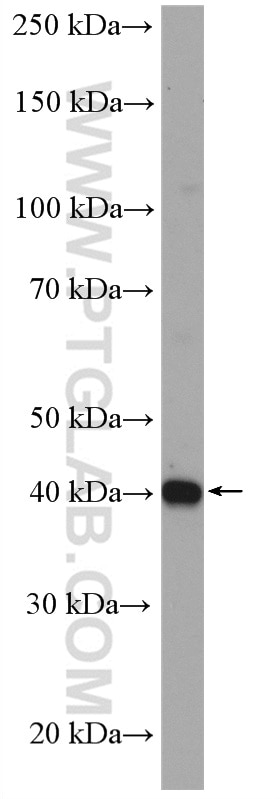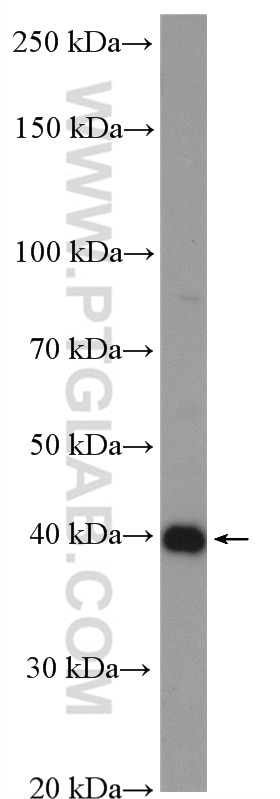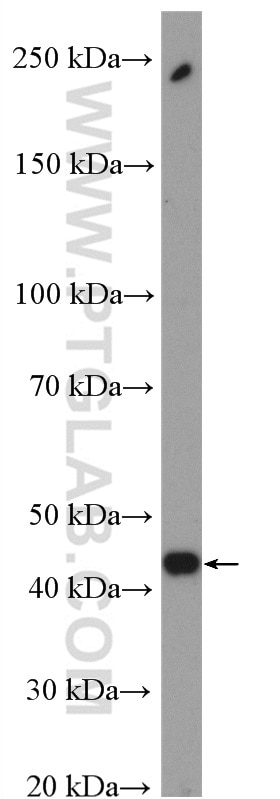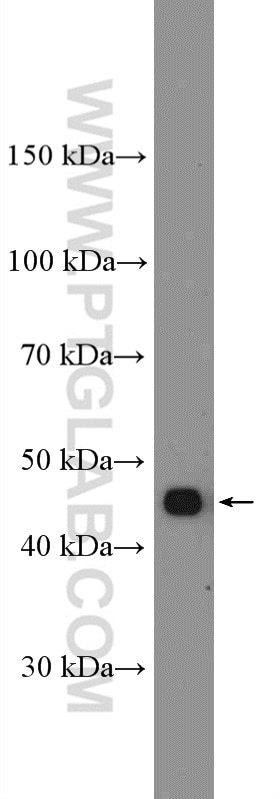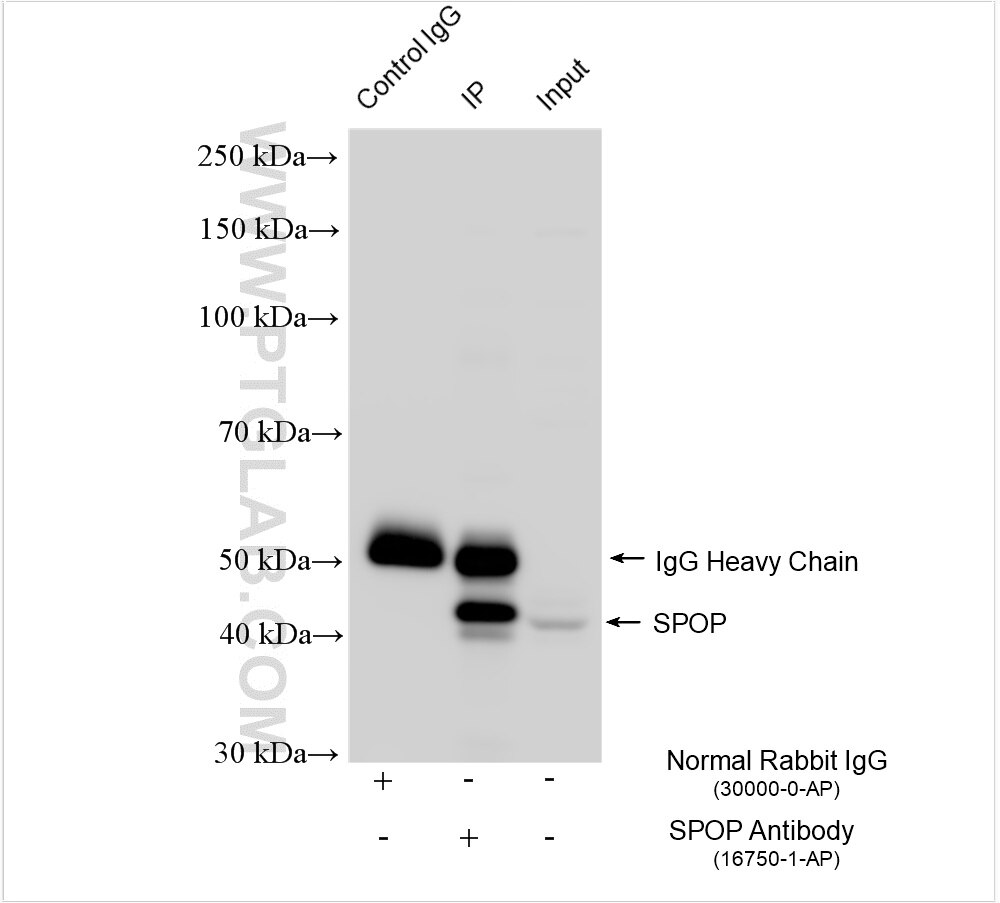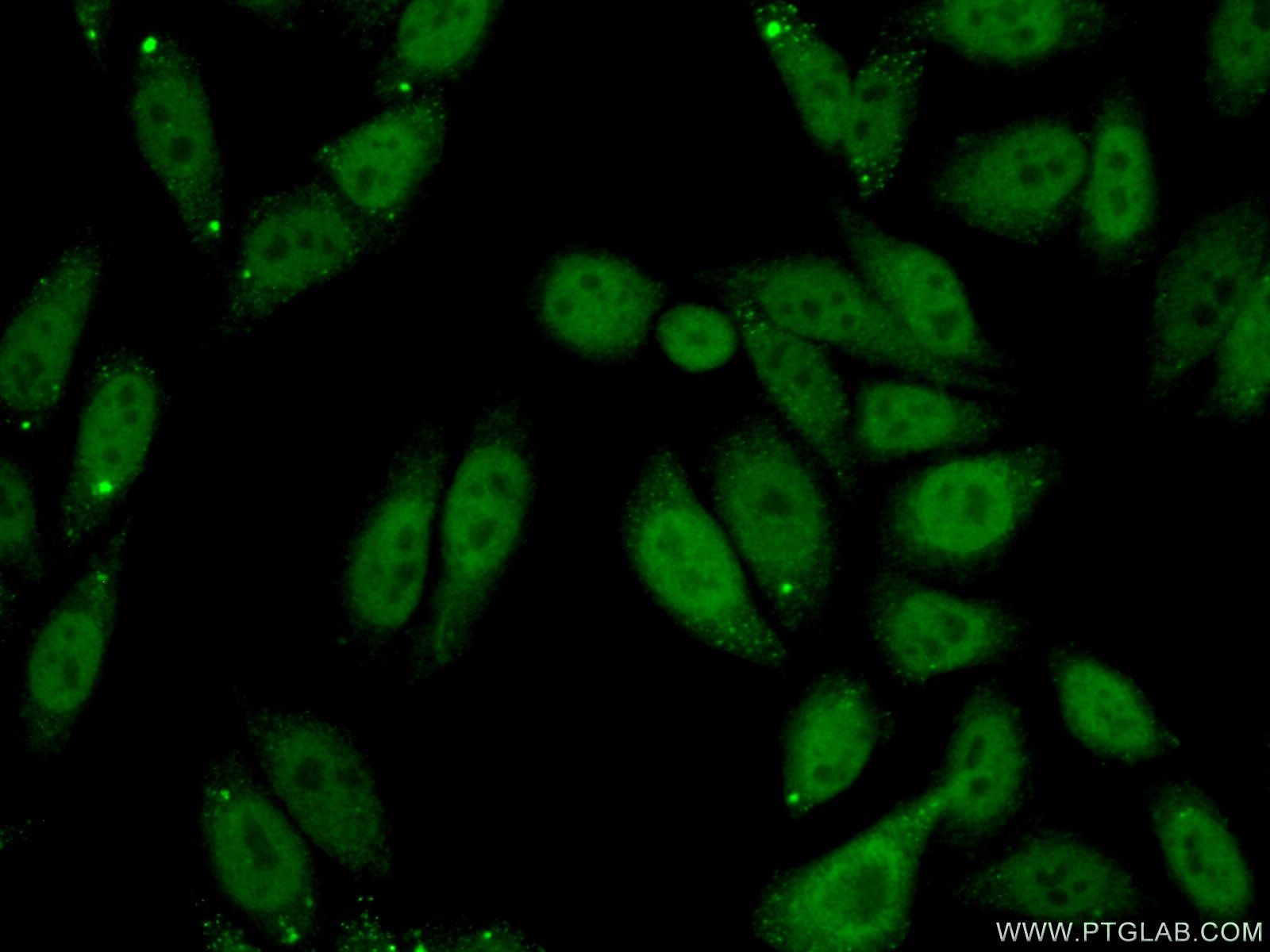Validation Data Gallery
Tested Applications
| Positive WB detected in | HeLa cells, HepG2 cells, PC-3 cells |
| Positive IP detected in | HepG2 cells |
| Positive IF/ICC detected in | HepG2 cells |
Recommended dilution
| Application | Dilution |
|---|---|
| Western Blot (WB) | WB : 1:5000-1:50000 |
| Immunoprecipitation (IP) | IP : 0.5-4.0 ug for 1.0-3.0 mg of total protein lysate |
| Immunofluorescence (IF)/ICC | IF/ICC : 1:50-1:500 |
| It is recommended that this reagent should be titrated in each testing system to obtain optimal results. | |
| Sample-dependent, Check data in validation data gallery. | |
Published Applications
| KD/KO | See 41 publications below |
| WB | See 79 publications below |
| IHC | See 13 publications below |
| IF | See 13 publications below |
| IP | See 9 publications below |
| CoIP | See 9 publications below |
| RIP | See 1 publications below |
Product Information
16750-1-AP targets SPOP in WB, IHC, IF/ICC, IP, CoIP, RIP, ELISA applications and shows reactivity with human, mouse, rat samples.
| Tested Reactivity | human, mouse, rat |
| Cited Reactivity | human, mouse, rat |
| Host / Isotype | Rabbit / IgG |
| Class | Polyclonal |
| Type | Antibody |
| Immunogen |
CatNo: Ag10215 Product name: Recombinant human SPOP protein Source: e coli.-derived, PGEX-4T Tag: GST Domain: 1-374 aa of BC003385 Sequence: MSRVPSPPPPAEMSSGPVAESWCYTQIKVVKFSYMWTINNFSFCREEMGEVIKSSTFSSGANDKLKWCLRVNPKGLDEESKDYLSLYLLLVSCPKSEVRAKFKFSILNAKGEETKAMESQRAYRFVQGKDWGFKKFIRRDFLLDEANGLLPDDKLTLFCEVSVVQDSVNISGQNTMNMVKVPECRLADELGGLWENSRFTDCCLCVAGQEFQAHKAILAARSPVFSAMFEHEMEESKKNRVEINDVEPEVFKEMMCFIYTGKAPNLDKMADDLLAAADKYALERLKVMCEDALCSNLSVENAAEILILADLHSADQLKTQAVDFINYHASDVLETSGWKSMVVSHPHLVAEAYRSLASAQCPFLGPPRKRLKQS 相同性解析による交差性が予測される生物種 |
| Full Name | speckle-type POZ protein |
| Calculated molecular weight | 374 aa, 42 kDa |
| Observed molecular weight | 42 kDa |
| GenBank accession number | BC003385 |
| Gene Symbol | SPOP |
| Gene ID (NCBI) | 8405 |
| RRID | AB_2756394 |
| Conjugate | Unconjugated |
| Form | |
| Form | Liquid |
| Purification Method | Antigen affinity purification |
| UNIPROT ID | O43791 |
| Storage Buffer | PBS with 0.02% sodium azide and 50% glycerol{{ptg:BufferTemp}}7.3 |
| Storage Conditions | Store at -20°C. Stable for one year after shipment. Aliquoting is unnecessary for -20oC storage. |
Background Information
The SPOP (TEF2) protein was previously identified as an autoantigen in a patient with scleroderma pigmentosum. SPOP (speckle-type POZ protein), also known as TEF2, HIB homolog 1 or Roadkill homolog 1, is a member of the Tdpoz family containing one N-terminal MATH (Meprin and TRAF Homology) domain and one C-terminal BTB/POZ domain. SPOP can exist as a homodimer and is expressed in a variety of tissues localizing to the nucleus. BTB-mediated SPOP dimers form linear oligomers via BACK domain dimerization, and we determine the concentration-dependent populations of the resulting oligomeric species (PMID: 27220849 ). Through an interaction with CUL-3, SPOP is involved in ubiquitinylation and protein degradation. SPOP specifically interacts with CUL-3 via its BTB/POZ domain and recruits substrates to the CUL-3-based ubiquitin ligase via its MATH domain. Substrates recruited by SPOP and targeted for ubiquitylation via the CUL-3/SPOP complex include PDX-1, Bmi-1, MacroH2A, PIPK II ∫ and Daxx. These substrates are subsequently degraded by the proteasome. In addition, SPOP itself becomes ubiquitylated by the CUL-3-based ubiquitin ligase and is targeted for proteasomal degradation.
Protocols
| Product Specific Protocols | |
|---|---|
| IF protocol for SPOP antibody 16750-1-AP | Download protocol |
| IP protocol for SPOP antibody 16750-1-AP | Download protocol |
| WB protocol for SPOP antibody 16750-1-AP | Download protocol |
| Standard Protocols | |
|---|---|
| Click here to view our Standard Protocols |
Publications
| Species | Application | Title |
|---|---|---|
Nature Cyclin D-CDK4 kinase destabilizes PD-L1 via cullin 3-SPOP to control cancer immune surveillance.
| ||
Nat Med Prostate cancer-associated SPOP mutations confer resistance to BET inhibitors through stabilization of BRD4.
| ||
Nat Med Intrinsic BET inhibitor resistance in SPOP-mutated prostate cancer is mediated by BET protein stabilization and AKT-mTORC1 activation.
| ||
Cell Res ILF3 is a substrate of SPOP for regulating serine biosynthesis in colorectal cancer.
| ||
Mol Cell DNA Damage Promotes TMPRSS2-ERG Oncoprotein Destruction and Prostate Cancer Suppression via Signaling Converged by GSK3β and WEE1. | ||
Mol Cancer SPOP-mediated ubiquitination and degradation of PDK1 suppresses AKT kinase activity and oncogenic functions.
|

